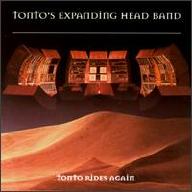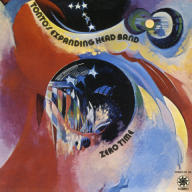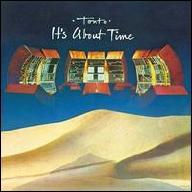In 1971, Cecil and Margouleff set out to record on their own, under the name of T.O.N.T.O.'s Expanding Head Band. The album Zero Time was a revolutionary piece of work that set out to explore the capabilities of the synthesizer with no regard for conceptions of pop success. Zero Time is still considered to be a turning point in the use of synthesizers in contemporary music. The following album, credited simply to Tonto, was the short-lived It's About Time, which came and went in a flash during 1972 (a fate that led to vinyl copies commanding high prices).
It's About Time was not the end of the T.O.N.T.O. story, however, as the duo continued to be very much in demand for studio work, with T.O.N.T.O. being called on to do everything from quietly replacing bass tracks to providing great washes of sound. Most importantly, Cecil and Margouleff began a long association with Stevie Wonder, whose Music of My Mind, recorded when he was 21 and just beginning a new Motown contract that gave him full control over his music, benefited from Cecil and Margouleff's work. Their influence on the subsequent course of Black American music is often missed -- where Wonder led the charge, others followed suit, changing the way the music was produced, the way albums were formulated, and the overall sound. Many of the leading jazz/R&B artists of the 1970s and early '80s called on the talents of Cecil and Margouleff, including the Isley Brothers, Gil Scott-Heron, the Crusaders, the Gap Band, Quincy Jones, David Sanborn, Wilson Pickett, and the Rippingtons.
T.O.N.T.O. was retired during the 1980s and was purchased by Devo's Mark Mothersbaugh. In 1996, the Viceroy label combined both albums onto the single-disc CD reissue Tonto Rides Again. Co-founder Malcolm Cecil died on March 28, 2021 after a long illness; he was 84 years old. ~ Steven McDonald, Rovi














